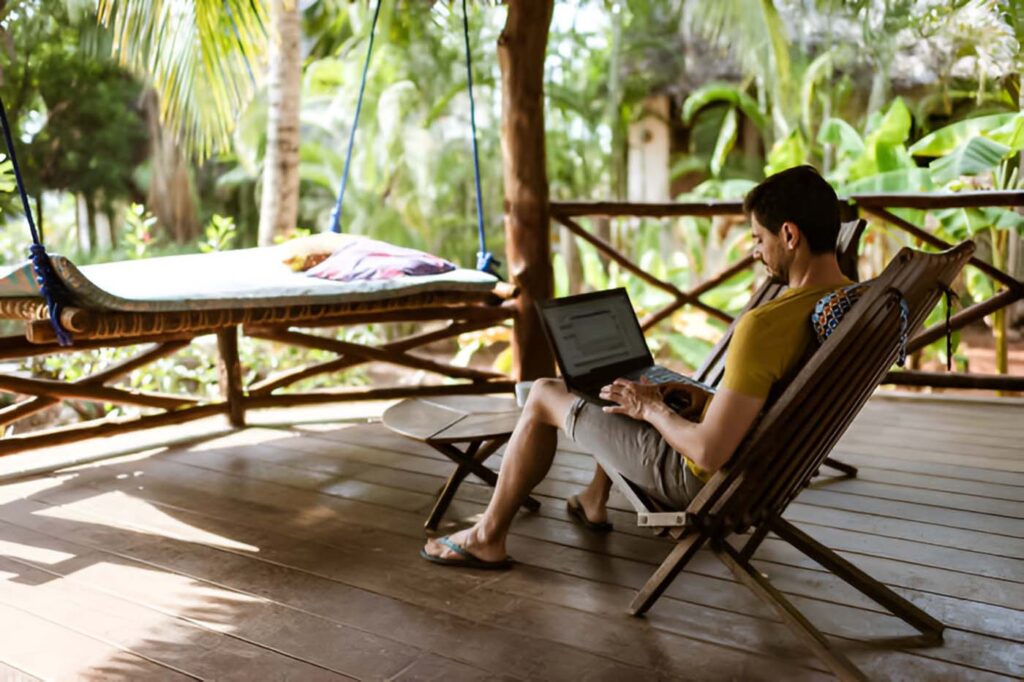Quick Answer
Zanzibar is surprisingly safe and welcoming for solo travelers, especially women. The main challenges you’ll face are higher activity costs (often 2-3x more when traveling alone), cultural dress codes in Stone Town, and navigating transportation without ride-sharing apps. Most solo travelers report feeling safer in Zanzibar than in their home countries and describe it as a transformative experience
Key Takeaways
- Safety: Zanzibar has a strong tourism-dependent economy and locals are generally peaceful and helpful to solo travelers
- Costs: Activities and tours cost significantly more for solo travelers – book in advance or join group tours to save money
- Transportation: No Uber/Bolt available – arrange airport transfers through hotels and get taxi driver contact numbers
- Cultural Respect: Cover shoulders and knees in Stone Town, don’t photograph people without permission
- Currency: Since March 2025, new regulations require Tanzanian Shillings for most local transactions (restaurants, shops, taxis). Tourism businesses can still accept USD from international visitors, but carry enough TZS for daily expenses

Safety Reality for Solo Travelers
Most solo travelers, particularly women, report feeling safer in Zanzibar than in many Western cities. The tourism-dependent economy means locals are generally protective of visitors, and tourism police maintain visible presence in Stone Town and popular beach areas.
The biggest safety considerations aren’t violent crime but typical tourist-targeted issues: overcharging, persistent vendors, and navigation challenges in Stone Town’s maze-like streets. Hotel staff prove particularly helpful, arranging trusted taxi services and providing local insights.
Solo female travelers should be aware of the “beach boys” phenomenon – young local men who approach tourists offering tours or companionship. They’re generally harmless but can be persistent. A firm “no thank you” while continuing to walk works effectively. Avoid isolated beach stretches, especially near sunset, and avoid walking alone in Stone Town after 9 PM.
Cultural Navigation and Respect
In Stone Town, covering shoulders and knees isn’t optional – it’s essential for respectful interactions with locals. Solo travelers report dramatically more positive experiences when dressed appropriately. Lightweight pants that roll up to just below knees work perfectly for the tropical climate.
The concept of “polle polle” (slowly, slowly) defines Zanzibar’s pace. Building extra time into plans helps manage expectations. During Ramadan, many restaurants close during daylight hours, limiting dining options, though tourist establishments typically remain open.
Photography etiquette matters – always ask permission before photographing people, and be respectful around mosques and religious sites.

Transportation Without Ride-Sharing
Airport transfers should always be arranged through your accommodation to avoid aggressive taxi touts. Getting a reliable driver’s contact information early proves invaluable – many solo travelers build relationships with drivers who become informal guides.
Transportation costs shock many solo travelers, particularly for longer distances. Stone Town walking works well during daylight, though narrow streets can be disorienting. Download offline maps and carry portable chargers since getting lost happens frequently.
How to get to Zanzibar provides detailed transportation options for arrival planning.
Managing Solo Travel Costs
Activity pricing assumes 2-4 person groups, meaning solo travelers often pay double or triple per-person rates. Popular excursions like Safari Blue, spice tours, and Jozani Forest visits follow this model. Booking through hotels or advance tour operators sometimes offers better solo rates.
Daily Budget Ranges:
- Budget Solo: $60-98 (guesthouse, local eateries, shared transport)
- Mid-Range Solo: $120-220 (boutique hotel, mixed dining, private taxis)
- Luxury Solo: $300-710+ (resort with single supplement, upscale dining)
Hidden Solo Costs: Activity surcharges (50-200% premium), resort single supplements ($30-100/night), full taxi fares, and tour minimums requiring 2-person payment.
Currency strategy became critical after March 2025 regulations. Tourism businesses can still accept US dollars from international visitors, but everyday transactions now require Tanzanian Shillings. Check current rates on XE.com before traveling. For comprehensive cost planning, see Zanzibar travel costs.

Best Timing for Solo Travel
The best time to visit Zanzibar for solo travelers often differs from general recommendations. The dry season (June-October) offers predictable weather but brings peak pricing. Solo travelers sometimes prefer shoulder seasons when prices drop and locals have more time for genuine interactions.
The rainy season (March-May) presents challenges since outdoor activities may be limited, but offers lowest prices and authentic local experiences as crowds thin significantly.
Accommodation Strategies
Stone Town accommodations put you in Zanzibar’s cultural heart, within walking distance of historical sites and restaurants. Solo travelers often prefer staying here for cultural immersion and lower transportation costs. Rooftop terraces provide social spaces to meet other travelers.
Beach accommodations can feel isolating for solo travelers, particularly at larger resorts. Smaller beach guesthouses provide better opportunities to connect with staff and other guests. Northern beaches (Nungwi and Kendwa) tend to be more social, while eastern beaches offer solitude.
For detailed recommendations by area and budget, check where to stay in Zanzibar, including solo traveler-specific options and safety considerations.

Meeting People and Dining Alone
Group tours provide the most reliable way to meet like-minded travelers. Spice tours, Safari Blue excursions, and diving trips regularly combine solo travelers into small groups. Stone Town hostels like Shaba Backpackers Lodge have communal areas where travelers gather evenings.
Beach social opportunities vary significantly. Nungwi attracts younger crowds with beach bars, while Kendwa offers sunset parties. Eastern beaches (Paje/Jambiani) feel more isolated but attract kite surfers and yoga enthusiasts who welcome fellow solo travelers.
Dining Alone Successfully
Local eateries called “mama lishe” often feature counter seating where eating alone is completely normal. Hotel restaurants provide comfortable solo dining for dinner. Street food works exceptionally well – vendors expect individual customers, and popular spots like Forodhani Gardens night market buzz with activity where solo diners blend naturally.
Sample Solo Itineraries
3-Day Stone Town Focus:
- Day 1: Arrive, Stone Town walking tour, sunset at Mercury House rooftop
- Day 2: Morning spice tour (join group), afternoon Forodhani Gardens market
- Day 3: Prison Island half-day trip, departure preparation
5-Day Balanced Experience:
- Days 1-2: Stone Town cultural immersion (spice tour, Prison Island, historical sites)
- Days 3-4: Northern beaches (Nungwi/Kendwa) for relaxation, Safari Blue trip
- Day 5: Return to Stone Town for departure, last-minute shopping
Both itineraries work best when you book group activities in advance to avoid solo premiums and ensure availability during peak seasons.

Essential Practical Planning
Documentation requirements include obtaining a Tanzanian visa through the official Tanzania Immigration website and ensuring passport validity of at least six months. Health considerations include yellow fever vaccination if arriving from endemic areas – check CDC’s Tanzania travel health page for current recommendations.
Communication planning becomes crucial for solo travelers. Airtel and Vodacom offer tourist packages at the airport for local connectivity. Stone Town hotels generally offer reliable WiFi, but beach accommodations can have spotty connections. Solo travelers needing consistent internet should prioritize accommodations specifically advertising reliable WiFi.
Banking arrangements should include informing your bank about travel plans and understanding ATM availability. Solo travelers may want larger cash reserves since unexpected expenses can’t be shared with companions.
Why Zanzibar Works for Solo Travelers
Zanzibar stands out among tropical destinations because it offers genuine cultural depth alongside stunning coastlines. The UNESCO World Heritage status of Stone Town means you’re experiencing centuries of Swahili, Arabic, and Indian cultural fusion.
For solo travelers, this cultural richness provides natural conversation starters with locals who are genuinely proud of their heritage. The archipelago strikes an ideal balance between infrastructure and authenticity – you’ll find reliable services when needed, but also authentic markets and genuine cultural exchange opportunities.
The tourism infrastructure supports solo travelers through established accommodation options, organized tours that welcome individual participants, and local communities that understand and appreciate independent travelers seeking authentic experiences.



